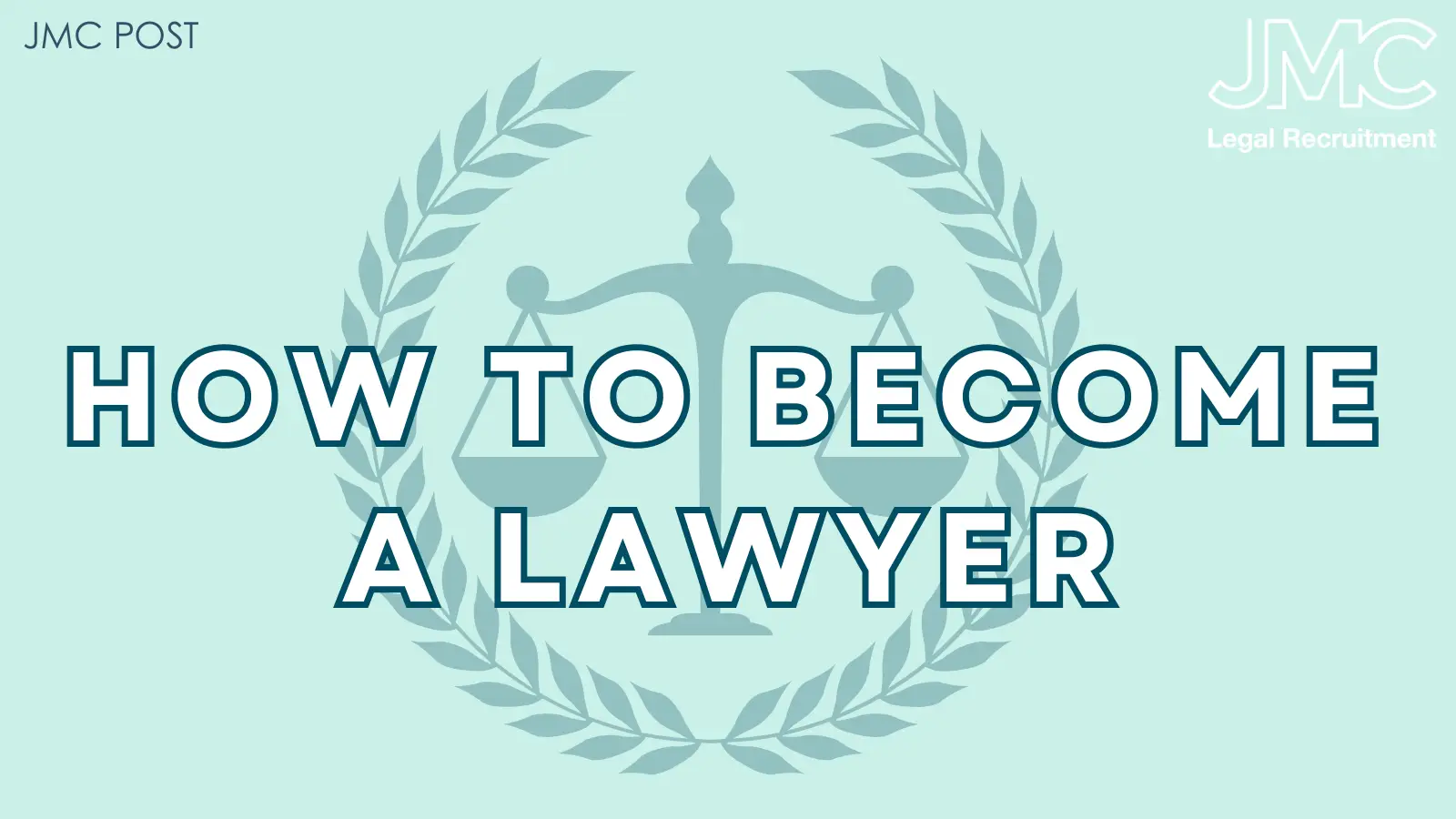
How To Become A Lawyer
15 Aug, 20256 minutes
How To Become a Lawyer
Your Step-by-Step Guide to Starting a Legal Career
Ever thought about becoming a lawyer? The journey might seem daunting, but the reality is, law is a career for anyone who’s passionate about justice, problem-solving, and making an impact. And here's the good news – it's never been more accessible to people from all walks of life. So, how do you get started? Let’s break it down.
Is Law the Right Fit for You?
Before you start applying for law school, it’s worth asking, why do I want to be a lawyer? Are you driven by justice? Love solving puzzles? If you’re the type of person who enjoys a good debate or has a passion for helping others, law might be the perfect fit. You don’t need to have everything figured out right now, but be sure you’re excited about the path ahead.
The Difference Between a Solicitor and Lawyer
You might also be curious about the difference between a solicitor and a lawyer. While both are lawyers, the difference lies in the role they play. Solicitors typically work directly with clients, advising them and handling legal matters, while barristers are often in court representing clients. And yes, that means donning a wig and digging that period drama vibe. In the UK, “lawyer” is a general term, while solicitors and barristers are the specific professions.
What Type of Lawyer Do You Want to Be?
It’s important to understand the different types of lawyers in the UK. There are several specific types of lawyers, each with different career paths and responsibilities. The two most common types are solicitors and barristers, but there are also other legal roles that you might find that pique your interest, such as legal executives.
Solicitors: These lawyers give legal advice, draft documents and represent clients in lower courts. Solicitors work closely with clients, helping them solve legal issues and managing their cases. They may also instruct barristers if a case goes to court. Solicitors are typically employed in law firms, as part of in-house legal teams, or by government agencies.
Barristers: Barristers are advocates who represent clients in higher courts. They focus on presenting cases and legal arguments in court, usually after a solicitor has done the preparatory work. They are often self-employed and work in chambers (groups of barristers) or as part of a larger team within law firms.
Legal Executives: These lawyers are often specialists in one area of law, such as family law or criminal law. They perform many of the same duties as solicitors but may not need to have completed a full law degree. Instead, they gain qualifications through professional training and apprenticeships.
Other Types of Lawyers: There are also other types of lawyers who focus on niche areas such as corporate law, human rights law, or intellectual property law. Each area requires its own expertise, and the career path will vary depending on your interest.
Knowing which type of lawyer you want to be will help you understand the qualifications and career steps you need to take. For example, becoming a solicitor or barrister will require different paths, so it’s important to have an idea of which role suits you best. Now let’s look at the education requirements you’ll need to pursue your dream career.
A More Open and Diverse Profession
“Every door is open if you PUSH: Persevere Until Something Happens.” I. Stephanie Boyce
Historically, the legal profession was often seen as something reserved for a select few, typically those with access to prestigious educational opportunities. However, over the years, law has become a more inclusive and diverse profession. Today, there are multiple routes into law, whether through the Solicitors Qualifying Examination (SQE) or Solicitor Apprenticeships, making it possible for you, whatever background you come from, to break into the field. There’s still work to be done, but the legal world has opened up, allowing you – regardless of socio-economic background, culture, or experience – to pursue a career that may once have felt out of reach.
What GCSEs do you Need to be a Lawyer?
If you're just starting out and wondering what GCSEs you need for law, the truth is, there’s no specific list of required subjects at this stage. But to give yourself a solid foundation, focus on subjects like English, history, and politics – these will help you develop the critical thinking and communication skills you’ll use every day as a lawyer. There’s also a GCSE in law, which can be a great introduction to the British legal system, if your school offers it. But remember, many lawyers didn’t study law until later in their education, so it’s not essential.
The Different Routes to Becoming a Lawyer
There’s no one-size-fits-all path to becoming a lawyer, and it all depends on where you’re starting. Here are the most common routes:
A-Levels and University
If you’re planning to attend university, you usually need at least 3 A-Levels with strong grades (often AAA or AAB) to apply for a law degree. What subjects are needed to become a lawyer? The A-Level subjects don’t matter as much as you might think, but here are a few helpful subjects:
- English Literature: Excellent for building your reading, writing, and analysis skills.
- History: Good for developing critical thinking, research skills, and an understanding of societal structures, which can be useful in law.
- Politics: Gives you an insight into legal systems, governance, and how laws shape society.
- Philosophy: Develops logical reasoning and ethical analysis – important for legal arguments.
- Business Studies: Useful for understanding the commercial aspects of law, especially if you're interested in corporate law.
- Maths and science: These subjects also demonstrate strong analytical skills which universities value.
Studying law at university is the most traditional path to becoming a lawyer in the UK, but you can also study another subject first and later pursue a Graduate Diploma in Law (GDL), a one-year law conversion course, and still become a lawyer.
Do you Need a Law Degree?
While a law degree (LLB) is the most common route to becoming a solicitor or barrister, no, you don’t need a law degree to become a lawyer. Here are the main paths:
For Solicitors:
- Law Degree (LLB): This is the quickest route to becoming a solicitor. It provides the essential legal knowledge needed to progress to the Legal Practice Course (LPC) or Solicitors Qualifying Examination (SQE).
- Graduate Diploma in Law (GDL): For those with a non-law degree, the GDL is a one-year course that prepares you for the LPC or SQE.
- Solicitor Apprenticeship: A non-university route where you work full-time while studying for legal qualifications. It takes 6 years and allows you to earn while learning.
- Solicitors Qualifying Examination (SQE): If you don’t have a law degree, the SQE allows you to qualify as a solicitor after gaining legal work experience and passing two exams. You’ll also need 2 years of qualifying work experience. This is a popular route for career changers.
For Barristers:
- Law Degree (LLB): To become a barrister, you’ll need to complete an LLB or GDL, followed by the Bar Course (vocational training).
- Pupillage: After the Bar Course, you’ll complete a one-year pupillage at a set of barristers’ chambers to gain practical experience.
Note on Scotland:
If you're planning to study law in Scotland, the process is slightly different. You would typically take a Scottish law degree, which incorporates both civil law and common law. The route to becoming a solicitor in Scotland is regulated by the Law Society of Scotland. After completing your Scottish law degree, you’ll need to take the Professional Legal Practice Course (PLPC) followed by a two-year traineeship. The process is similar in structure but follows Scotland’s legal system and training requirements.
How Long Does It Take to Become a Lawyer?
How long does it take to become a solicitor or barrister? It depends on the route you take. Here’s a clear breakdown:
For Solicitors:
- Law Degree (LLB): If you’re starting from scratch, it generally takes 3-4 years to complete your law degree, followed by an additional 2 years for training (like the LPC or SQE).
- Solicitor Apprenticeship: If you choose this route, it takes about 6 years in total, as you work full-time while studying.
For more details on becoming a solicitor, check out the Legal Practice Course (LPC) and the training contract, which typically takes 2 years.
For Barristers:
Law Degree (LLB): To become a barrister, you’ll need to complete an LLB or GDL, followed by the Bar course (vocational training), which typically takes 1 year.
Pupillage: After the Bar course, you’ll need to complete a 1-year pupillage at a set of barristers’ chambers or another approved legal environment, gaining practical experience before you can practice independently.
Gain Experience Along the Way
Law is a practical career and it can be highly competitive, so building experience early on is crucial.
- Get Work Experience: Try to gain experience in a law firm or legal setting. Work experience is valuable no matter where you are in your journey and gives you a sense of what being a lawyer is really like.
- Paralegal Work: If you can, work as a paralegal before going to law school or after you complete your studies. It’s a great way to understand different areas of law and gain real-world experience.
- Internships/Placements: Look for internships or summer placements in law firms or legal organisations. These can provide direct exposure to legal work and allow you to build connections within the industry.
- Volunteering/Pro Bono Work: Volunteering for legal charities or doing pro bono work can be a valuable way to gain experience while making a positive impact.
- Networking: Attend industry events, law societies, or online webinars to meet professionals in the field. Networking is essential for staying informed about opportunities and developments in the legal world.
- Mooting and Competitions: Participate in mooting or other legal competitions to build your skills in legal research, writing, and speaking.
- Job Shadowing: Try to shadow a solicitor or barrister to see how they manage their day-to-day work. It can help you understand the profession from a more personal, hands-on perspective.
Real-World Insights: Here’s what lawyers have to say
Sometimes, the best way to know if you’re making the right decision about starting down the path to becoming a lawyer is to speak to those who’ve gone through the process. We speak to lawyers up and down the country every day, so we put a survey together to ask them a few questions.
Many lawyers are drawn to law because it offers an interesting and varied career, with others focusing on earning potential or their passion for justice. Knowing your motivation is crucial for making this long-term commitment.
Would you recommend law as a career path to the next generation?

It seems that while many would recommend law, there’s also a sizeable portion who wouldn’t, making it important to evaluate your motivations and goals carefully.
Did getting your first legal job after your degree take as long as you expected?

The journey to securing that first legal job isn’t always quick, with 37% of people saying it took longer than they expected and 24% still on the job hunt. So, be prepared to manage your expectations, particularly in a competitive field of law.
If you could go back to law school, would you?

It’s not all roses! While many enjoy the career, a whopping 76% would skip going back to school! Law school might be tough, but don’t worry. You won’t have to spend all day and night reading textbooks… well, mostly not.
The Skills You’ll Need to Succeed
When you’re trying to figure out how to become a lawyer, it’s easy to just focus on education and grades. But that isn’t all you need. Proving you know the law is just one part of it. Using your skills to apply that knowledge effectively is just as, if not more, important. For this, you need the right skillset.
Communication: Being able to communicate clearly and persuasively is essential. Whether you’re drafting legal documents or speaking in court, clear communication is key.
Problem-Solving: You’ll need to analyse situations, think critically, and find the best legal solutions for your clients.
People Skills: Lawyers work with people all the time, so having the ability to build and maintain strong relationships is important.
Attention to detail: Lawyers need to be meticulous. A small mistake can have big consequences, so attention to detail is essential when reviewing legal documents, contracts, and case files to ensure accuracy and avoid errors.
How much do lawyers get paid in the UK?
You may not be a lawyer yet, but it’s always useful to know what your potential earnings could be, right? Salaries in the legal profession can vary significantly depending on several factors, including practice area, firm size, individual performance, and location. For instance, the average lawyer salary in London tends to be higher than the national average.
Corporate law often offers higher salaries than areas like family law, due to the complexity and high stakes involved in commercial cases. The type of employer also plays a major role in determining earnings. Whether you work at a large law firm, in-house legal department, or as a self-employed barrister will affect your pay.
For self-employed barristers, earnings can fluctuate based on case load and specialisation, with successful barristers in niche areas, like commercial law, often earning significantly more than those in broader practice areas.
Here’s a snapshot of the average lawyer salary in the UK:
Role | National Average Salary | London Average Salary | High-End/Top Firms |
Solicitor | £49,046 | £60,738 | £100,000 - £180,000 |
Trainee Solicitor | £36,067 | £42,784 | £50,000 - £61,000 |
Barrister | £40,511 | £58,493 | £1,000,000+ |
Want to know what type of law makes the most money? Check out our blog post: What Areas Of Law Pay The Best In the UK?
The Legal Career Starts Here
The next step is finding your first job. That requires an excellent CV tailored to the role you’re applying for and focused on provable actions you’ve taken and wins you’ve had along the way. This is where we can help. You need a specialist recruitment agency for law graduates who know the legal job market inside out. At JMC Legal Recruitment we make sure you find not just any job, but the right job for you. Plus, we have loads of free resources on our website to help you.
Once you’ve landed your first job, your next goal is forging the career you want on your terms. We can also help there too. We know what firms are looking for, which ones offer genuine career growth opportunities, and which firms are likely to be expanding in the future, opening up more career opportunities internally.
For many, a legal career is a lifelong pursuit that opens doors to many different paths. It could mean becoming a partner at a law firm, moving to an in-house legal role, setting up your own business or finding a unique specialism and becoming the go-to lawyer in your niche.
Ready to launch your legal career? Get in touch with JMC Legal Recruitment today, and let’s make your dream job a reality!
Further Reading:
https://www.jmc-legal.com/resources/blog/what-areas-of-law-pay-the-best-in-the-uk-/
https://www.jmc-legal.com/resources/blog/greater-london-could-be-your-best-legal-career-step-yet/
https://www.jmc-legal.com/resources/blog/what-is-a-partner-in-a-law-firm-/
https://www.jmc-legal.com/resources/blog/the-legal-cv-mistake-that-s-costing-you-interviews/




